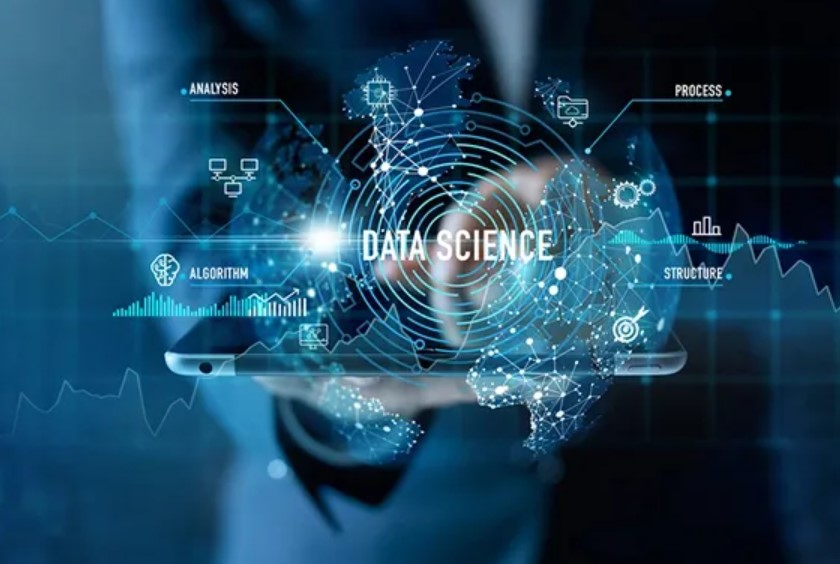
Automated Machine Learning (AutoML): Simplifying Model Training
Introduction
In the rapidly advancing field of machine learning, the demand for expertise in building and optimising models can often be a significant barrier to entry. Automated Machine Learning (AutoML) aims to lower this barrier by automating the end-to-end process of applying machine learning to real-world problems. AutoML has extensive applicability and is a learning that is highly in demand among professionals as evident from the number of enrolments a Data Science Course in Bangalore and such cities draws.
This article explores the concept of AutoML, its benefits, and its impact on the field of data science.
What is AutoML?
Automated Machine Learning (AutoML) refers to the process of automating the complex and iterative tasks involved in building machine learning models. AutoML platforms and tools streamline various stages of the machine learning pipeline, from data preprocessing and feature engineering to model selection, hyperparameter tuning, and deployment. The primary goal of AutoML is to make machine learning accessible to non-experts while enabling experienced practitioners to focus on more complex tasks.
Key Components of AutoML
Most Data Scientist Classes on AutoML begin by elaborating the key components of AutoML. Following is a brief overview of these key components of AutoML.
Data Preprocessing:
- Automated Cleaning: Handling missing values, outliers, and noisy data.
- Feature Engineering: Generating and selecting relevant features automatically.
- Normalisation and Scaling: Ensuring data is in the right format for modelling.
Model Selection:
- Algorithm Choice: Automatically selecting the best machine learning algorithms for the given task.
- Model Ensemble: Combining multiple models to improve predictive performance.
Hyperparameter Optimisation:
- Automated Tuning: Using techniques like grid search, random search, and Bayesian optimisation to find the optimal hyperparameters.
Evaluation and Validation:
- Automated Cross-Validation: Ensuring models are evaluated rigorously to prevent overfitting.
- Performance Metrics: Automatically calculating relevant metrics to assess model performance.
Deployment:
- Model Export: Simplifying the process of deploying models to production environments.
- Monitoring and Maintenance: Automating the monitoring of model performance and retraining when necessary.
Benefits of AutoML
Accessibility
AutoML democratises machine learning, enabling individuals with limited expertise to build and deploy models. This widens the pool of people who can leverage machine learning in various domains.
Efficiency
By automating repetitive and time-consuming tasks, AutoML accelerates the model development process, allowing data scientists to focus on higher-level problem-solving and strategy.
Performance
AutoML platforms often achieve competitive or even superior performance by exploring a wider range of models and hyperparameters than a human might manually test.
Scalability
AutoML tools can handle large datasets and complex problems, scaling machine learning efforts across an organisation without a proportional increase in resources.
Consistency
Automated processes ensure that model development follows best practices consistently, reducing the likelihood of human error.
Popular AutoML Tools and Platforms
Some popular AutoML tools and platforms generally taught in most Data Scientist Classes are described in this section.
Google Cloud AutoML
A suite of machine learning products that enables developers with limited machine learning expertise to train high-quality models.
H2O.ai
Provides an open-source AutoML platform that automates the process of training and tuning models, making it easier for users to deploy machine learning solutions.
Auto-Sklearn
An open-source library built on top of scikit-learn that automates the model selection and hyperparameter tuning process using ensemble learning techniques.
TPOT (Tree-based Pipeline Optimisation Tool)
An open-source tool that uses genetic programming to optimise machine learning pipelines, automating the entire process from feature selection to model evaluation.
Azure Machine Learning
A cloud-based service by Microsoft that offers AutoML capabilities, simplifying the process of building, training, and deploying machine learning models.
Real-World Applications
In urban learning centres, most technical course offerings will have, in addition to a generic version, a domain-specific version also. This is because professionals seek to acquire skills that are pertinent to their roles. Thus, a Data Science Course in Bangalore will have some topics that are specific to some leading domains such as healthcare, finance, or education. Here are some domain-specific applications of AutoML.
Healthcare
AutoML can be used to develop models for diagnosing diseases, predicting patient outcomes, and personalising treatment plans, making advanced healthcare analytics more accessible.
Finance
In finance, AutoML is used for credit scoring, fraud detection, and algorithmic trading, where timely and accurate predictions are crucial.
Retail
Retailers leverage AutoML for demand forecasting, recommendation systems, and customer segmentation, enhancing the shopping experience and optimising inventory management.
Marketing
AutoML helps marketers analyse customer data to improve targeting, predict churn, and optimise marketing campaigns, driving better engagement and ROI.
Conclusion
Automated Machine Learning (AutoML) is transforming the landscape of data science by simplifying and accelerating the model training process. By automating key aspects of the machine learning pipeline, AutoML makes it possible for non-experts to build and deploy powerful models, while freeing up experienced practitioners to tackle more complex challenges. As AutoML tools continue to evolve, they will play an increasingly vital role in democratising machine learning and driving innovation across various industries. Embrace AutoML to enhance your data science efforts and unlock the full potential of your data. In several learning centres across various cities, Data Scientist Classes are conducted that offer excellent coverage on advanced ML technologies like AutoML.
For More details visit us:
Name: ExcelR – Data Science, Generative AI, Artificial Intelligence Course in Bangalore
Address: Unit No. T-2 4th Floor, Raja Ikon Sy, No.89/1 Munnekolala, Village, Marathahalli – Sarjapur Outer Ring Rd, above Yes Bank, Marathahalli, Bengaluru, Karnataka 560037
Phone: 087929 28623
Email: [email protected]
